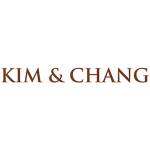Joon Young Kim, Seung Jae Yoo and Bomi Chen of Kim & Chang provide a detailed guide on cryptocurrency compliance where cryptocurrencies are not formally recognised in regulation
Korean law does not have any rules or regulations which explicitly define or provide guidelines for how cryptocurrencies are to be classified. In a press release on June 23 2017, the Financial Supervisory Service (FSS) set out its view on what does not constitute a cryptocurrency. Specifically, the FSS held that cryptocurrencies do not include: fiat currencies; prepaid electronic means or electronic currencies under the Electronic Financial Transactions Act; or financial investment instruments under the Financial Investment Services and Capital Markets Act (FSCMA). Unfortunately, the FSS press release did not state what does constitute a cryptocurrency.
On May 30 2018, however, the Supreme Court of Korea ruled that cryptocurrencies, which should be considered as intangible property, can be confiscated if they have been acquired as a result of any criminal act. The Supreme Court thus acknowledged for the first time that a cryptocurrency could be recognised as property. Nevertheless, given the narrow scope of its interpretation, it is unclear what impact this ruling will have on subsequent cryptocurrency regulations in Korea.
Currently, there are no laws or guidelines from any regulatory authority in Korea that explain how cryptocurrencies should be classified and how any legal issues involving cryptocurrencies should be regulated. However, Korean regulators do tend to apply and/or enforce existing relevant Korean laws and regulations, such as the FSCMA and the Criminal Act, for cryptocurrency-related matters.
ICO and securities regulations
The main legal framework governing securities in Korea is the FSCMA. The Financial Services Commission (FSC) issued a press release on September 4 2017 banning initial coin offerings (ICOs) that violate the FSCMA. However, the press release did not explain how and in what context ICOs may violate the FSCMA. The financial regulator's initial position was to penalise ICOs where tokens were offered in the form of a securities issuance (ie, it is a violation of the FSCMA if a token is classified as a security). Thereafter, on September 29 2017 financial regulators announced that any type of ICO would be prohibited. The financial regulators did not cite any statutory basis for this announcement.
If coins or tokens are classified as securities under the FSCMA, ICOs or token offerings will be subject to the FSCMA's securities offering restrictions. Where coins or tokens are not classified as securities under the FSCMA, however, there are no legal grounds for Korean regulators to prohibit and/or enforce against an ICO or a token offering. Nonetheless, considering the government's latest position and policy regarding cryptocurrencies, Korean regulators can still raise an issue or challenge an ICO or token offering on the basis that it constitutes or involves criminal fraud or an unlicensed fund raising business.
To pre-empt the classification of coins or tokens as securities under the FSCMA (in which case certain FSCMA restrictions and requirements apply), an issuer can consider engaging in a coin or token offer and sale on private placement basis. Under the FSCMA, an offer or sale of securities to 50 or more non-accredited investors (excluding professional investors) would be regarded as a public offer, in which case an issuer (whether located onshore or offshore) must file a securities registration statement in respect of the securities with the FSC. Even if such an offer and sale is made to fewer than 50 investors, it may still be deemed a public offer for the purposes of the FSCMA where the securities may be transferred to more than 50 investors within one year from the issuance.
In light of the foregoing, the number of token/coin buyers should be limited to 49 persons in order to avoid the securities registration statement filing requirement under the FSCMA. In addition, an issuer of tokens/coins is recommended to contractually require investors to be subject to lock-up restrictions at least for the period of one year from the issuance.
FSCMA: cryptocurrency as a security
As noted above, there are no rules or regulations under the FSCMA designed to explicitly characterise or regulate cryptocurrencies.
However, the FSCMA defines securities as:
financial investment products for which investors do not owe any obligation to pay anything in addition to the money or any other valuables paid at the time of acquiring such instruments (excluding obligations to pay where an investor assumes such an obligation by exercising a right to effectuate the purchase and sale of an underlying asset), provided that there are certain securities, such as investment contract securities, which are only recognized as securities under the FSCMA when meeting certain conditions under the FSCMA.
Securities are further categorised into six different classes under the FSCMA:
1. Debt securities;
2. Equity securities;
3. Beneficiary certificates;
4. Investment contract;
5. Derivatives-linked securities;
6. Depositary receipts
A token or coin could fall under the definition of a debt security, equity security or investment contract, depending on their contractual and/or constitutional rights and obligations.
Normally in the context of an ICO, it is critical to review and determine whether a token or coin involved may be regarded as an investment contract for the purposes of the FSCMA. Under the FSCMA, in order for a token or coin to be regarded as an investment contract, the token or coin must: entail contractual rights for any profit and liability for any loss of an investor; be based on performance and/or result of a common enterprise; and be mainly managed and operated by another person.
FX regulations
There are no Korean foreign exchange rules or regulations that explicitly provide for any restrictions or requirements applicable to transactions involving cryptocurrencies. However, for fiat currencies, the Foreign Exchange Transaction Act (FETA) and the Foreign Exchange Transactions Regulations (FETR) regulate the remittance of funds out of Korea to overseas accounts. Generally, there must be a legal basis, along with supporting documents as prescribed under the FETA, to repatriate funds overseas. Examples of a legal basis include loan repayments, dividend payments and sale proceeds payments. The FETA prescribes certain procedures and documents for different types of transaction as listed in the FETA for both a person intending to remit funds offshore and bank(s) facilitating such a remittance. Each type of transaction has different procedures and requirements to remit funds overseas. Generally, under the FETA, all outbound remittance in an amount exceeding $3,000 per transaction or a yearly aggregate limit of $50,000 must be reported to and approved by the Bank of Korea.
There are no guidelines regarding cryptocurrencies under the FETA or the FETR. In practice, however, Korean banks decline to process wire transfers overseas when they are pertain to cryptocurrency trading, even if the intended transfer amount is below the daily or early limit (as discussed above) or otherwise would not trigger any reporting requirements under the FETA.
Type |
Rate |
Assessment |
Corporate income tax |
11% – 27.5% |
Taxable under current law |
Corporate or individual VAT |
10% |
Undecided |
Income tax |
6.6% – 46.2% |
Taxable under current law |
Capital gains tax |
6.6% – 46.2% |
Undecided, but for retain investors, levying capital gains tax is advisable |
Inheritance and gift tax |
10% – 50% |
Taxable under current law |
AML regulations
Currently, cryptocurrency exchanges are not directly subject to any anti-money laundering requirements under the AML Act. Instead, Korean financial regulators indirectly enforce the anti-money laundering (AML) requirements through financial institutions that engage in business transactions with cryptocurrency exchanges. Recently, certain bills have been proposed to require cryptocurrency exchanges to be subject to the requirements and restrictions of the AML Act. However, it is not certain when these bills will be passed by the National Assembly and become effective.
Financial institutions doing business with companies that handle cryptocurrencies are subject to the Financial Intelligence Unit's Anti-Money Laundering Guidelines for Cryptocurrencies (AML Guidelines). These Guidelines cover: the identification of cryptocurrency exchanges; suspicious transaction reports; internal controls: the denial of transactions; and sanctions for violations of the provisions of the AML Guidelines.
The AML Guidelines provide that if a financial institution is found to have violated the AML Guidelines, financial regulators may impose correction orders or business suspension orders within six months from the violation pursuant to the AML Act.
Accounting and tax
There are no tax laws or accounting standards in Korea which are intended to explicitly regulate cryptocurrencies. Some accounting firms and cryptocurrency exchanges have adopted an interpretation that cryptocurrencies are to be classified as "intangible assets" for the purpose of accounting treatment. In the meantime, the National Tax Service (NTS) has indicated the need to develop accounting standards for cryptocurrencies to further develop applicable tax schemes.
The Ministry of Economy and Finance has announced that plans for the taxation of cryptocurrencies are being developed but no decisions have been made as yet. Meanwhile, the NTS published its preliminary assessment of taxing cryptocurrencies after its 2017 annual forum. This assessment is not official policy but is the only published position of the Korean government relating to taxes on cryptocurrency related matters.
Recent enforcement actions
ICOs may be subject to a regulatory investigation for criminal fraud or for conducting unlicensed fund-raising business. If an issuer in an ICO knowingly disclosed any false information in its marketing materials for the ICO, such as a whitepaper, the issuer may be found to have committed a fraudulent act. If an issuer guarantees the principal amount of the investment for its coins or tokens, the issuer may be found to have conducted unlicensed fund-raising business, which is a criminal violation in Korea.
According to an FSS press release of January 31 2019, the FSS conducted investigations on 22 different ICOs during the three months from September to November 2018 and it will notify the Prosecutors Office of any illegal acts involved in such ICOs.
About the author |
||

|
|
Joon Young Kim Senior lawyer, Kim & Chang Seoul, South Korea T: +82 2 3703 1824 F: +82 2 737 9091/9092 Joon Young Kim is a lawyer at Kim & Chang. His practice focuses on insurance, e-finance and fintech, non-bank financial companies, corporate governance, M&A and foreign direct investment. Joon Young regularly advises financial industry clients including insurance, e-finance & fintech, and non-bank financial companies on regulatory, governance and corporate law issues. He has also successfully advised clients in disputes and litigation, as well as in responding to inquiries or investigations from relevant government regulators. Joon Young has extensive experience in corporate governance, M&A and foreign direct investment matters, particularly for clients in the financial industry. He also regularly advises on legal issues relating to the latest innovations and technology relating to blockchain, cryptocurrencies and cloud computing. |
About the author |
||

|
|
Seung Jae Yoo Senior foreign lawyer, Kim & Chang Seoul, South Korea T: +82 2 3703 1566 F: +82 2 737 9091/9092 Seung Jae (SJ) Yoo is a foreign lawyer within the finance department at Kim & Chang. SJ has extensive experience in cross-border M&A, capital markets and other projects. Throughout his career, SJ has been actively involved in many high-profile transactions in Korea or relating to Korean businesses including banking, automobiles, heavy industry & shipbuilding and other sectors. He represents corporate clients and both foreign and domestic financial institutions on various M&A, capital markets and other projects. |
About the author |
||

|
|
Bomi Chen Lawyer, Kim & Chang Seoul, South Korea T: +82 2 3703 4694 F: +82 2 737 9091/9092 Bomi Chen is a lawyer at Kim & Chang, who specialises in finance. She primarily provides legal advice on finance IT, electronic financial transaction, personal/financial information protection, credit card regulation and project financing. Bomi's clients include Korean and global financial companies and Korean and global IT service providers. Bomi majored in electrical engineering. Since joining the firm in 2014, she has advised clients on various legal and technical regulations related to electronic financial transaction and privacy. She has also taken on various IT security compliance projects for financial companies. |




